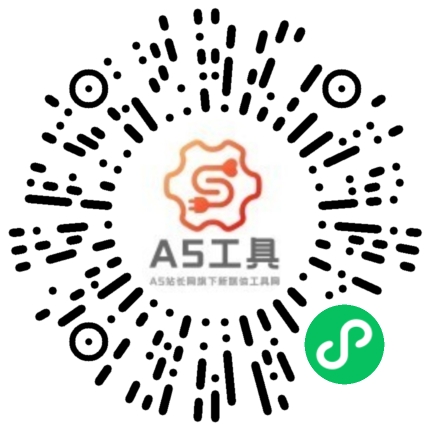声音克隆:未来之声的奇迹还是灾难?探讨声音复制的利弊
2025-01-15 18:39
**Voice Cloning: The Future of Sound Replication?**
In an era where technology is rapidly advancing, have you ever stopped to consider the intricacies of voice cloning—or, as it’s termed in English, "voice cloning"? This fascinating technology is not just a figment of science fiction but a burgeoning reality, capable of reshaping industries and sparking ethical debates. But what exactly is voice cloning, and how does it work?
Voice cloning is the process of creating a synthetic replica of a person's voice through machine learning and speech synthesis technology. By utilizing a brief sample of someone's voice, an AI model can be trained to replicate their speech patterns, tone, and even emotional nuances. This means that, with just a few seconds of audio, AI can mimic almost anyone's voice with startling accuracy.
Consider the implications of such technology. Imagine a world where you can hear a deceased loved one reading a bedtime story to your children, or where a CEO can authorize business transactions using their cloned voice rather than traditional methods. The possibilities are endless, yet so are the potential risks.
One of the most compelling applications of voice cloning lies in the realm of personalized learning. In the education sector, AI can now provide students with an adaptive learning experience that feels more intimate and engaging, as if they are hearing a familiar voice guiding them through their studies. This could revolutionize the way we educate future generations, making learning more accessible and effective.
However, the flip side of this coin is equally concerning. Voice cloning technology has the potential to be weaponized for fraud and deception. Criminals could clone the voices of high-profile individuals to perpetrate scams, as evidenced by a 2019 incident where a UK-based energy company CEO's voice was cloned to steal $240,000. This underscores the urgent need for robust security measures to combat such threats.
Moreover, the creative industries could be disrupted as voice actors and artists find their unique voices replicated with ease. While this might open up new avenues for collaboration and creativity, it also poses questions about ownership and authenticity in an increasingly synthetic world.
Despite these concerns, the march of technology continues unabated. Leading AI tools and applications, such as Coqui XTTS and Resemble AI, are making it easier for even non-experts to create high-quality cloned voices. These tools leverage advanced algorithms and deep learning models to produce incredibly realistic speech, often indistinguishable from the original.
In conclusion, voice cloning is a double-edged sword, offering immense potential for good while also presenting significant risks. As we navigate this brave new world, it is crucial to strike a balance between innovation and caution. By doing so, we can harness the power of voice cloning to enhance our lives while mitigating the dangers it poses.
So, what do you think about voice cloning? Is it a marvel of modern technology or a recipe for disaster? Share your thoughts in the comments below, and let's start a conversation about the future of sound replication.
In an era where technology is rapidly advancing, have you ever stopped to consider the intricacies of voice cloning—or, as it’s termed in English, "voice cloning"? This fascinating technology is not just a figment of science fiction but a burgeoning reality, capable of reshaping industries and sparking ethical debates. But what exactly is voice cloning, and how does it work?
Voice cloning is the process of creating a synthetic replica of a person's voice through machine learning and speech synthesis technology. By utilizing a brief sample of someone's voice, an AI model can be trained to replicate their speech patterns, tone, and even emotional nuances. This means that, with just a few seconds of audio, AI can mimic almost anyone's voice with startling accuracy.
Consider the implications of such technology. Imagine a world where you can hear a deceased loved one reading a bedtime story to your children, or where a CEO can authorize business transactions using their cloned voice rather than traditional methods. The possibilities are endless, yet so are the potential risks.
One of the most compelling applications of voice cloning lies in the realm of personalized learning. In the education sector, AI can now provide students with an adaptive learning experience that feels more intimate and engaging, as if they are hearing a familiar voice guiding them through their studies. This could revolutionize the way we educate future generations, making learning more accessible and effective.
However, the flip side of this coin is equally concerning. Voice cloning technology has the potential to be weaponized for fraud and deception. Criminals could clone the voices of high-profile individuals to perpetrate scams, as evidenced by a 2019 incident where a UK-based energy company CEO's voice was cloned to steal $240,000. This underscores the urgent need for robust security measures to combat such threats.
Moreover, the creative industries could be disrupted as voice actors and artists find their unique voices replicated with ease. While this might open up new avenues for collaboration and creativity, it also poses questions about ownership and authenticity in an increasingly synthetic world.
Despite these concerns, the march of technology continues unabated. Leading AI tools and applications, such as Coqui XTTS and Resemble AI, are making it easier for even non-experts to create high-quality cloned voices. These tools leverage advanced algorithms and deep learning models to produce incredibly realistic speech, often indistinguishable from the original.
In conclusion, voice cloning is a double-edged sword, offering immense potential for good while also presenting significant risks. As we navigate this brave new world, it is crucial to strike a balance between innovation and caution. By doing so, we can harness the power of voice cloning to enhance our lives while mitigating the dangers it poses.
So, what do you think about voice cloning? Is it a marvel of modern technology or a recipe for disaster? Share your thoughts in the comments below, and let's start a conversation about the future of sound replication.
这篇关于《声音克隆:未来之声的奇迹还是灾难?探讨声音复制的利弊》的文章就介绍到这了,更多新媒体运营相关内容请浏览A5工具以前的文章或继续浏览下面的相关文章,望大家以后多多支持A5工具 - 全媒体工具网!
相关资讯
查看更多
静享斗地主!解锁克隆版无声模式,沉浸策略新境界
**如何优雅地“静音”克隆斗地主?解锁无声胜有声的游戏新境界**
在繁忙的都市生活中,斗地主作为一款老少皆宜的休闲游戏,早已超越了传统牌桌的界限,以克隆斗地主等数字形态,风靡于手机与平板之间。然而,...

声音克隆新突破:如何打造极致相似,情感丰富的声音范例?
**探索声音克隆新纪元:如何打造令人惊叹的范例?**
在科技日新月异的今天,声音克隆已不再是遥不可及的科幻梦境,而是逐步走进现实世界的奇妙技术。你是否曾幻想过,拥有一把与偶像完全相同的声音钥匙,解锁...

AI助力视频克隆声音,巧除杂音,还原纯净之声,让创意更动听!
**视频克隆声音:如何巧妙剔除杂音,还原纯净之声?**
在数字时代,视频克隆技术已成为创意表达和信息传播的新宠。然而,在享受这一技术带来的无限可能时,你是否曾苦恼于视频中那些恼人的杂音?这些不期而至...

一键消音克隆模式,重归游戏宁静,告别诡异声音侵扰!
**克隆模式下的诡异声音:如何一键消音,重归游戏宁静?**
在虚拟世界的浩瀚宇宙中,克隆模式以其独特的魅力吸引了无数玩家的目光。然而,在这一场场充满刺激与挑战的对决中,你是否曾被一种难以言喻的诡异声...

剪映克隆声音:音频创作革新,轻松“复制”任何声音!
**剪映克隆声音:解锁音频创作新纪元**
在数字创意飞速发展的今天,视频创作已不再局限于画面与剪辑的单一维度,音频的个性化与创新性同样成为了衡量作品质量的关键。你是否曾幻想过,在视频创作中轻松拥有与...

克隆声音技术:交流新纪元还是伦理挑战?未来已来!
**克隆声音语气:未来的交流革命?**
在科技日新月异的今天,你是否曾幻想过与已故的亲人再次“对话”,或是让AI助手拥有与你一模一样的声音语气?克隆声音语气,这一听起来仿佛只存在于科幻电影中的技术,...

声音克隆技术:解锁声音新世界,让梦想之声触手可及!
**声音克隆源码:解锁声音的新纪元,你准备好探索了吗?**
在这个日新月异的科技时代,声音克隆技术正悄然改变着我们对声音的认知与应用。你是否曾幻想过,用自己的声音为动画角色配音,或是让已故亲人的声音...

声音克隆AI隐退之时:技术无痕,人文关怀的未来已来
**如何优雅地抹去“声音克隆AI”的字样:一场探索与反思之旅**
在这个科技日新月异的时代,声音克隆AI技术如同一道耀眼的光芒,照亮了人机交互的新篇章。然而,当这项技术日益融入我们的日常生活,一个不...





